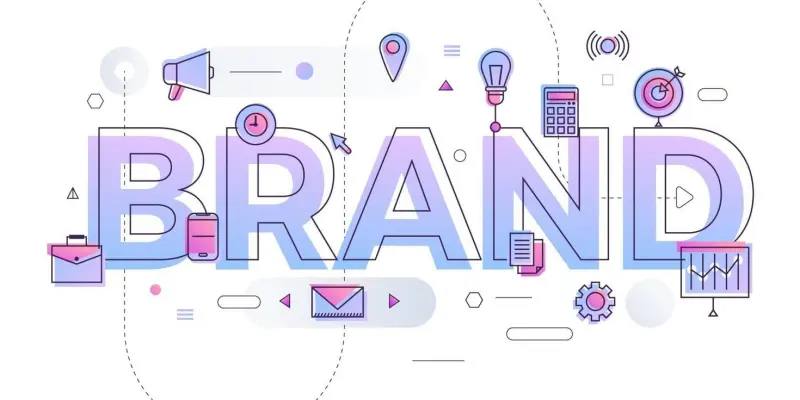In an era dominated by the attention economy, brands face an unprecedented challenge in keeping shoppers, particularly the Gen Z cohort, consistently engaged and loyal. This generational group, characterized by its digital fluency and evolving preferences, tends to get bored easily, demanding creative and novel marketing tactics to capture and retain their interest. Nearly half of Gen Z consumers report growing bored with their favorite brands, a stark contrast to the 29% of older consumers who express similar sentiments. This data signifies a critical need for marketers to rethink traditional loyalty strategies and adapt to the unique demands of younger consumers. The key to maintaining their brand’s appeal lies in moving beyond conventional loyalty rewards and discounts towards creating immersive, dynamic, and personal experiences that resonate emotionally with these young shoppers.
The Shift in Consumer Engagement
Traditional marketing approaches, which often focus on straightforward loyalty programs and generic promotional offers, appear increasingly inadequate for engaging today’s youth. Gen Z consumers prioritize innovation and creativity over mere transactional benefits. About 30% of this demographic have tried new brands solely based on their creative marketing campaigns, illustrating the power of inventive and captivating content. Marketers now face the task of transforming mundane products into lifestyle statements through unique and edgy branding. Examples like Liquid Death’s unconventional approach and Asda’s ‘Brat Summer’ campaign highlight how inventive campaigns can turn everyday products into unforgettable experiences. Such strategies not only capture initial interest but also foster a deeper connection, transforming fleeting attention into lasting brand loyalty.
Moreover, understanding the audience’s interests and values is fundamental to crafting experiences that resonate with them. To truly appeal to Gen Z, brands need to pay attention to their social consciousness, desire for authenticity, and preference for personalized interactions. The days of one-size-fits-all marketing are over. Instead, brands must create tailored experiences that speak directly to the individual preferences of these young consumers. This means leveraging technology to offer bespoke solutions that feel both relevant and engaging. Such approaches can lead to sustained interest and long-term loyalty, essentially transforming initial curiosity into a deep-seated commitment to the brand.
The Role of Artificial Intelligence in Personalization
Artificial Intelligence (AI) has become a formidable tool for brands aiming to achieve the level of personalization necessary to engage Gen Z effectively. AI-driven personalization can offer timely and relevant interactions that feel bespoke and meaningful to each consumer. By sorting through extensive data sets, AI can identify previously overlooked audience segments, allowing marketers to create highly-targeted campaigns specifically designed to appeal to distinct sub-groups within Gen Z. The ability to offer such individualized marketing experiences is crucial in maintaining long-term customer engagement. Indeed, generative AI is reported to save marketers approximately 2.3 hours per campaign, freeing up time to focus on creativity and strategic initiatives that resonate with their audience.
Furthermore, the majority of marketers recognize the importance of AI in enhancing customer engagement. Two-thirds believe that AI is essential for boosting this metric, and half have already seen tangible results in the form of increased engagement through AI-enabled personalization. The integration of AI has shifted from being a mere efficiency tool to becoming an essential element in strategic marketing. For Gen Z, who expect immediate and relevant interactions, AI’s capabilities in delivering these experiences are not just advantageous but necessary. By balancing AI with human ingenuity, brands can craft highly effective marketing strategies that not only capture attention but also build sustained loyalty.
Fostering Authentic and Dynamic Engagement
AI’s potential extends far beyond enhancing efficiency; it is also a catalyst for unleashing human creativity in marketing. When AI automates routine tasks, marketers gain the freedom to experiment with bold and innovative concepts that align with Gen Z’s preferences. Brands can then focus on creating genuine, authentic experiences that feel unique and personal. This holistic approach ensures that interactions are not only efficient but also resonate on an emotional level. For instance, AI can analyze social media trends to inspire timely and culturally relevant campaigns, making brands appear agile and in tune with the zeitgeist.
Ultimately, the goal is to foster authentic engagement that feels dynamic and evolving, much like the preferences of Gen Z consumers. Rather than static loyalty programs, brands need to cultivate ongoing relationships marked by continuous interaction and adaptation. This requires a seamless integration of AI with human intelligence to ensure that marketing strategies are both innovative and grounded in a deep understanding of the target audience. By doing so, brands can stand out in an oversaturated market and successfully convert Gen Z’s initial interest into long-term loyalty.
Embracing the Future: AI and Human Creativity
Artificial Intelligence (AI) has emerged as a powerful tool for brands seeking to achieve the level of personalization needed to effectively engage Gen Z. AI-driven personalization provides timely, relevant interactions that feel customized and meaningful to each consumer. By analyzing vast datasets, AI can uncover previously unnoticed audience segments, enabling marketers to develop highly-targeted campaigns for specific Gen Z sub-groups. This capability is vital for fostering long-term customer engagement. Additionally, generative AI reportedly saves marketers around 2.3 hours per campaign, allowing more time to focus on creativity and strategic initiatives that resonate with their audience.
Most marketers acknowledge AI’s importance in enhancing customer engagement. Two-thirds believe AI is crucial for boosting this metric, and half have already observed increased engagement from AI-enabled personalization. AI has evolved from merely an efficiency tool to an essential component of strategic marketing. For Gen Z, who demand immediate, relevant interactions, AI’s role in delivering these experiences is essential. By combining AI with human creativity, brands can design highly effective marketing strategies that not only capture attention but also build lasting loyalty.

